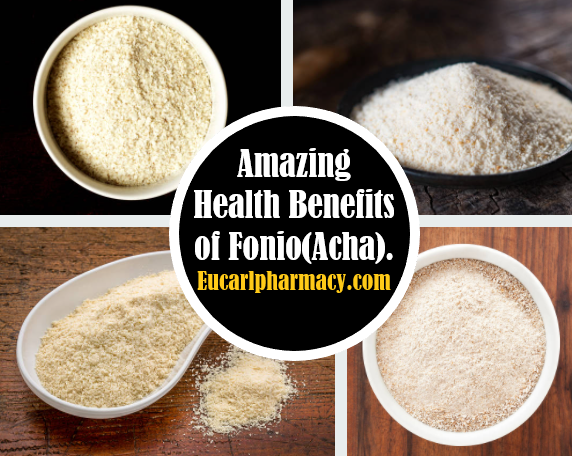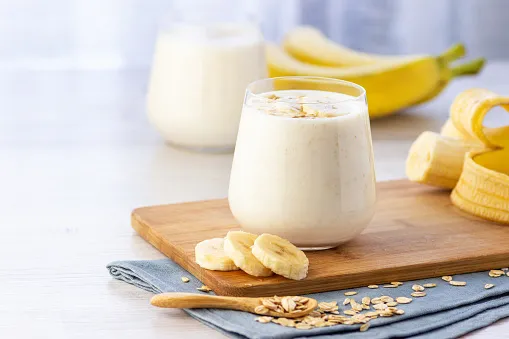20 Amazing Health Benefits of Abacha (African Salad)
The health benefits of Abacha, also known as African salad or Kunnu, is a popular dish in West Africa, particularly in Nigeria. It is made with thin strands of cassava or plantain, combined with vegetables, oil, and spices to create a flavorful and satisfying meal.
In addition to its delicious taste, Abacha offers a range of health benefits that make it a nutritious and beneficial addition to any diet.
Abacha is a versatile dish that can be enjoyed as a snack or a main meal, and it is often served at events and celebrations.
Abacha is made by soaking and peeling cassava or plantain, then slicing it into thin strands that are soaked in water and mixed with spices, vegetables, and oil.
The vegetables commonly used in Abacha include Uziza, Ukazi, and Utazi leaves, which are native to West Africa and known for their unique flavor and health benefits.
The oil used in Abacha is typically palm oil, which is a traditional ingredient in West African cuisine and has been shown to have numerous health benefits.
In addition to its taste and cultural significance, Abacha offers numerous health benefits that make it a nutritious and beneficial addition to any diet. It is low in calories and rich in dietary fiber, which can help to improve digestion and prevent constipation.
Abacha is also high in antioxidants, which can help to protect the body against free radicals and reduce the risk of chronic diseases such as heart disease and cancer.
The vegetables in Abacha are rich in vitamins and minerals, including vitamin A, vitamin C, and iron, which are essential for maintaining overall health and supporting the immune system.
Additionally, the oil in Abacha is rich in monounsaturated fats, which have been linked to a reduced risk of heart disease, and it can help to lower cholesterol levels in the body.
This article will explore 20 amazing health benefits of Abacha, highlighting the various nutrients and compounds found in this traditional West African dish that contribute to overall health and well-being.
Overall, Abacha is a nutritious and delicious dish that offers a wide range of health benefits, making it a valuable addition to any diet.
20 Amazing Health Benefits of Abacha (African Salad)

There are many more health benefits of Abacha, including its role as a good source of protein, its rich content of potassium, its high levels of calcium, and its abundance of folate, vitamin E, and iron.
Additionally, Abacha is a good source of zinc, beta-carotene, magnesium, lauric acid, manganese, and copper, all of which are important for various aspects of health and well-being. Listed below are the 20 health benefits of Abacha:
- Abacha is a low-calorie food, making it a suitable option for those looking to maintain or lose weight.
- It is rich in dietary fiber, which can help to improve digestion and prevent constipation.
- Abacha contains a high amount of antioxidants, which can help to protect the body against free radicals and reduce the risk of chronic diseases such as heart disease and cancer.
- The vegetables in Abacha, such as Uziza and Ukazi, are rich in vitamins and minerals, including vitamin A, vitamin C, and iron. These nutrients are essential for maintaining overall health and supporting the immune system.
- Abacha is a good source of protein, which is important for maintaining and repairing tissues in the body.
- The oil in Abacha, such as palm oil, is rich in monounsaturated fats, which have been linked to a reduced risk of heart disease.
- The oil in Abacha can also help to lower cholesterol levels in the body, which can reduce the risk of heart disease and stroke.
- The vegetables in Abacha, such as Uziza and Uziza leaves, are rich in calcium, which is important for strong bones and teeth.
- Abacha is a good source of potassium, which can help to regulate blood pressure and maintain healthy heart function.
- The vegetables in Abacha, such as Ukazi and Uziza, are rich in folate, which is important for proper brain function and the production of red blood cells.
- The oil in Abacha, such as palm oil, is Rich In Vitamin E, which is important for maintaining healthy skin and hair, and thus one of the health benefits of Abacha.
- Abacha is a good source of iron, which is important for carrying oxygen to the cells in the body and preventing anemia.
- The vegetables in Abacha, such as Uziza and Ukazi, are rich in vitamin C, which is important for collagen production and healthy skin.
- Abacha is a good source of zinc, which is important for a healthy immune system and wound healing, and thus one of the health benefits of Abacha.
- The vegetables in Abacha, such as Ukazi and Uziza, are rich in beta-carotene, which is converted to vitamin A and is important for eye health.
- Abacha is a good source of magnesium, which is important for maintaining healthy bones and regulating muscle and nerve function, and thus one of the health benefits of Abacha.
- The oil in Abacha, such as palm oil, is rich in lauric acid, which has antimicrobial properties and may help to boost the immune system.
- Abacha is a good source of manganese, which is important for proper bone development and metabolism.
- The vegetables in Abacha, such as Ukazi and Uziza, are rich in flavonoids, which have antioxidant and anti-inflammatory properties.
- Abacha is a good source of copper, which is important for maintaining healthy blood vessels and the production of collagen.
Conclusion
Abacha is a popular and nutritious dish that offers a wide range of health benefits. It is low in calories, high in dietary fiber, and rich in antioxidants, making it a suitable option for weight management and disease prevention.
The vegetables in Abacha are rich in vitamins and minerals, including vitamin A, vitamin C, and iron, which are essential for maintaining overall health and supporting the immune system.
The oil in Abacha is rich in monounsaturated fats and can help to lower cholesterol levels, reducing the risk of heart disease and stroke. In addition to these benefits, Abacha is a good source of protein, potassium, calcium, folate, vitamin E, iron, zinc, beta-carotene, magnesium, lauric acid, manganese, and copper, making it a nutritious and valuable addition to any diet.






